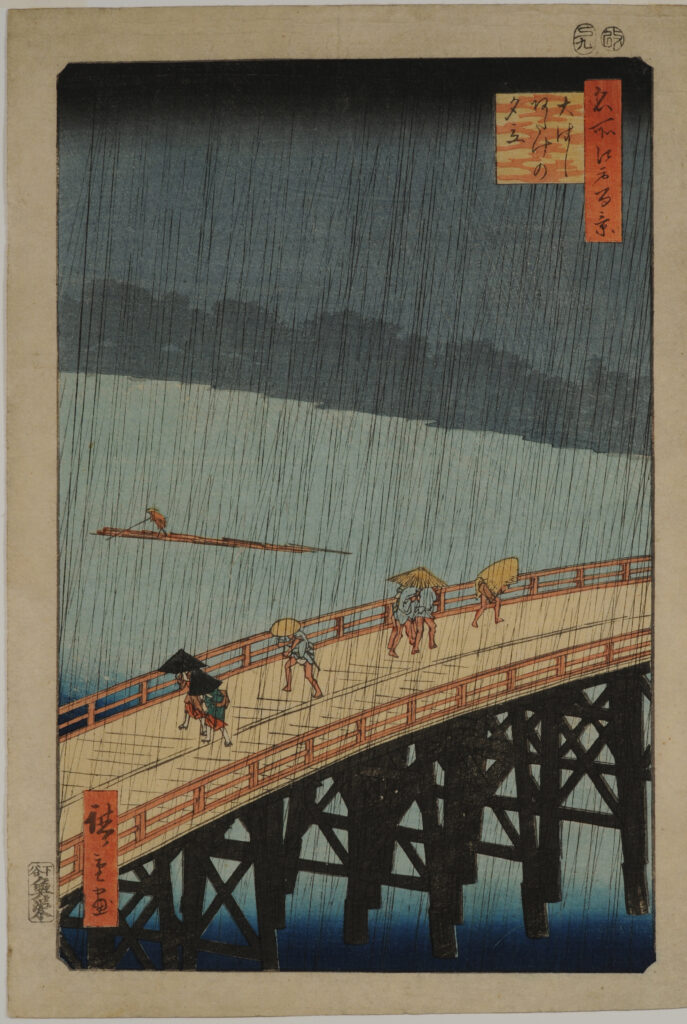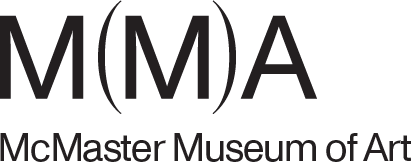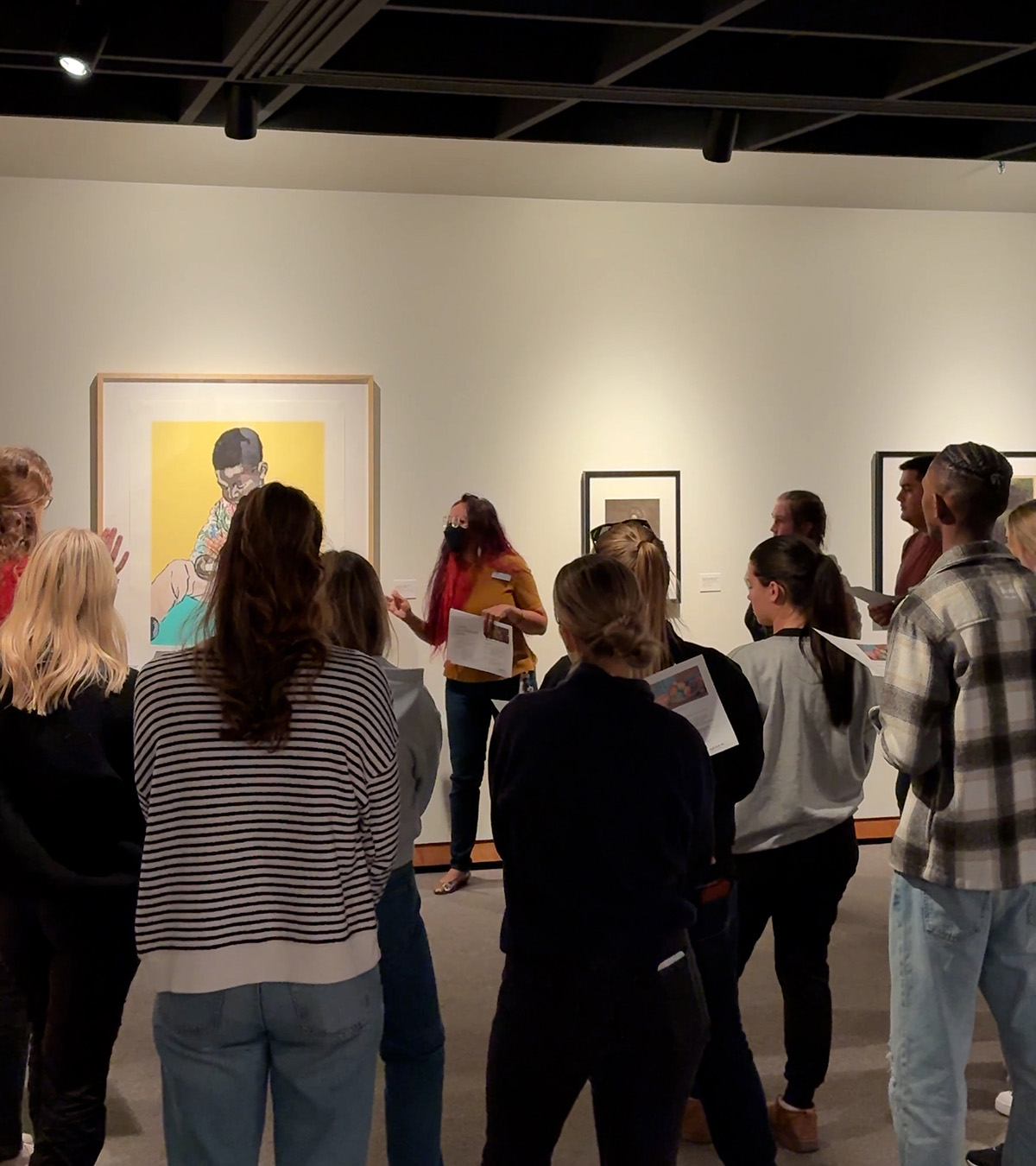
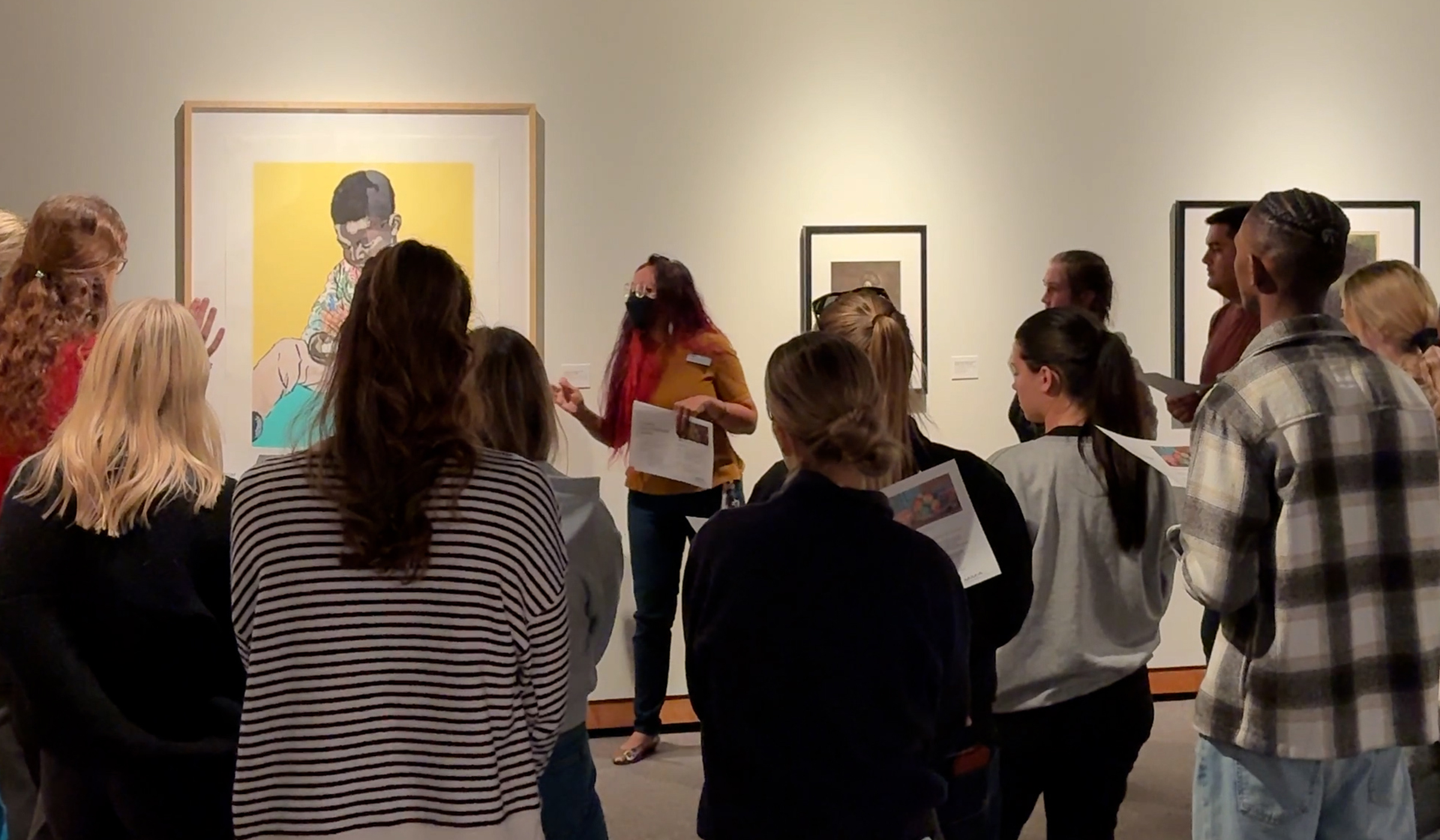
ART PROGRAM OUTLINES
McMaster Museum of Art’s education staff provide free visual art-based learning opportunities. Programs are designed for a variety of audiences including elementary (grade 5 and up) and high school, postsecondary, adults, and groups of all ages. We have a selection of in-person and virtual program options.
Have an idea for a program? Build a Program with Us!
We are dedicated to cross curricular and integrated learning, bringing art education into a variety of subject areas in your classes. If you are an instructor, professor or teaching assistant, we invite you to use us as a resource for creating unique, art-based experiential learning opportunities for your students. These opportunities are free for McMaster classes and groups and available on weekdays. We’d love to work with you!
For more information or to book a program, contact:
Teresa Gregorio, Educator: Campus & Community Engagement
gregort@mcmaster.ca
Please note: the museum has the right to cancel programs in advance of scheduled start times due to unforeseen or unexpected circumstances. We will work with you to find a time to reschedule.
THE PROGRAMS
Programs are flexible and we will work with you to focus on your classroom interests and needs.
Program 1
Introduction to Decolonial Museums
Participants will look at museums with a critical lens. The coloniality of these institutions will be examined, and participants will be introduced to contemporary criticisms, decolonial actions, and the roles of different professionals within museums who perform this work.
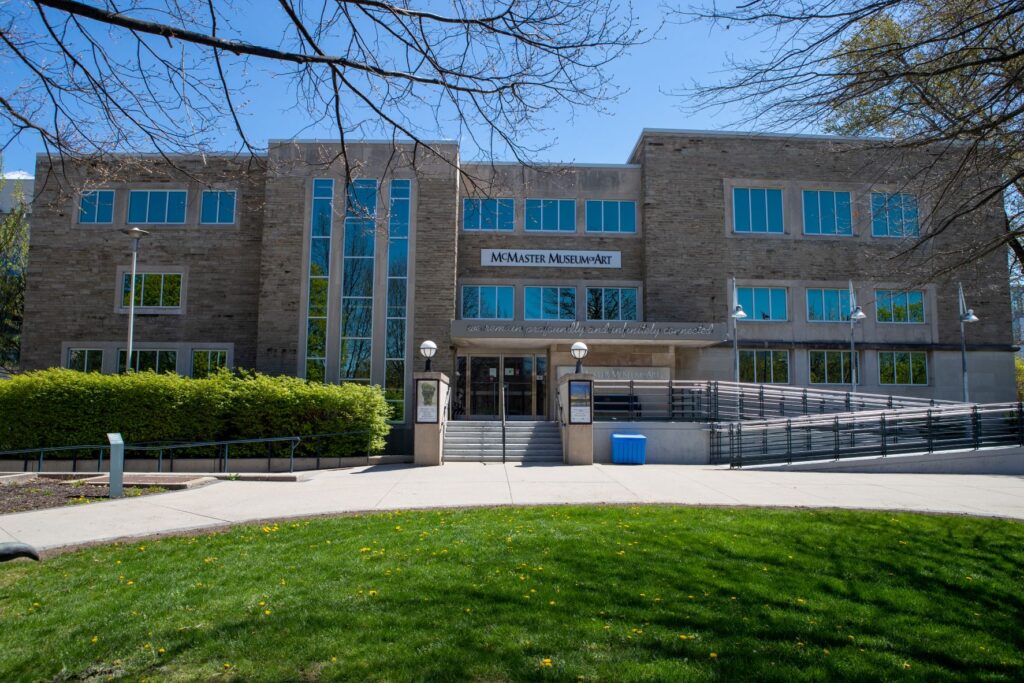
Program 2
Gender and Art
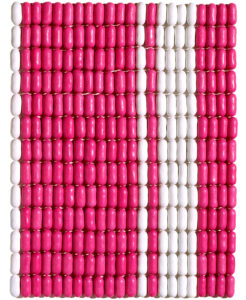
Program 3
Indigenous Art and Connection to Land
Through guided looking and reflective exercises, participants will engage with notions of land as represented in work by Indigenous artists from several nations. McMaster-area participants (traditional territory of Mississauga and Haudenosaunee Nations) will connect with art, histories, and issues directly related to the land in which they live and examine their shared responsibility as outlined in the Dish With One Spoon wampum agreement.
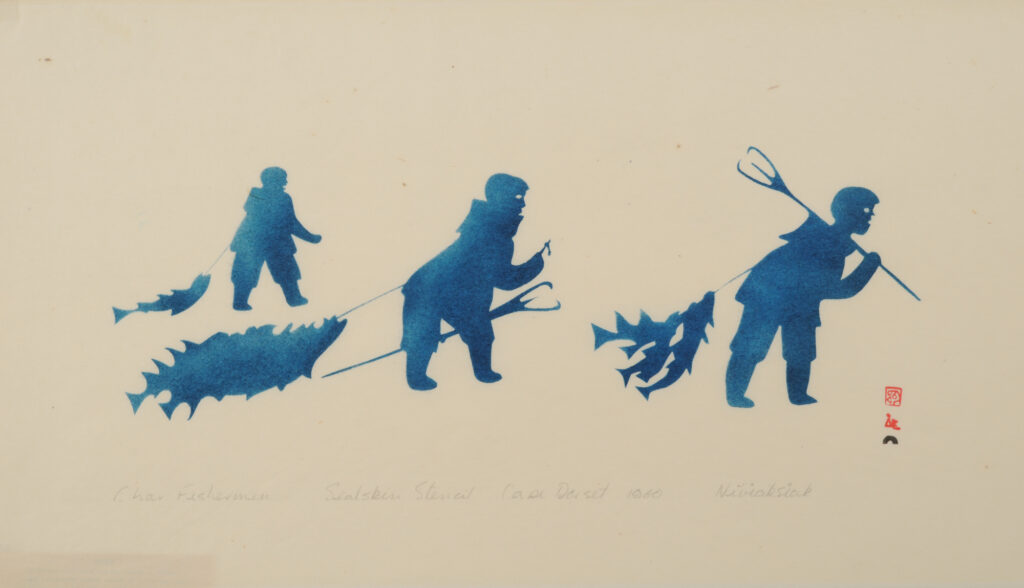
Gift of Mr. W.M. Berry © Dorset Fine Arts
Program 4
the cut, the tear & the remix: contemporary collage and Black futures
Through guided looking and reflective activities participants will engage in integrated and cross-curricular learning that focuses on young, contemporary Black Canadian artists and how they express ideas of Afrofuturism and the diaspora in their diverse styles and approaches to collage. The 2021 M(M)A online exhibition the cut, the tear & the remix: contemporary collage and Black futures is the basis for these explorations. This program is designed to engage with transferrable skills of critical thinking and problem solving, innovation and creativity, self-directed learning and metacognition, collaboration through co-construction of knowledge, communication, global citizenship and sustainability, and digital literacy (in coding option).
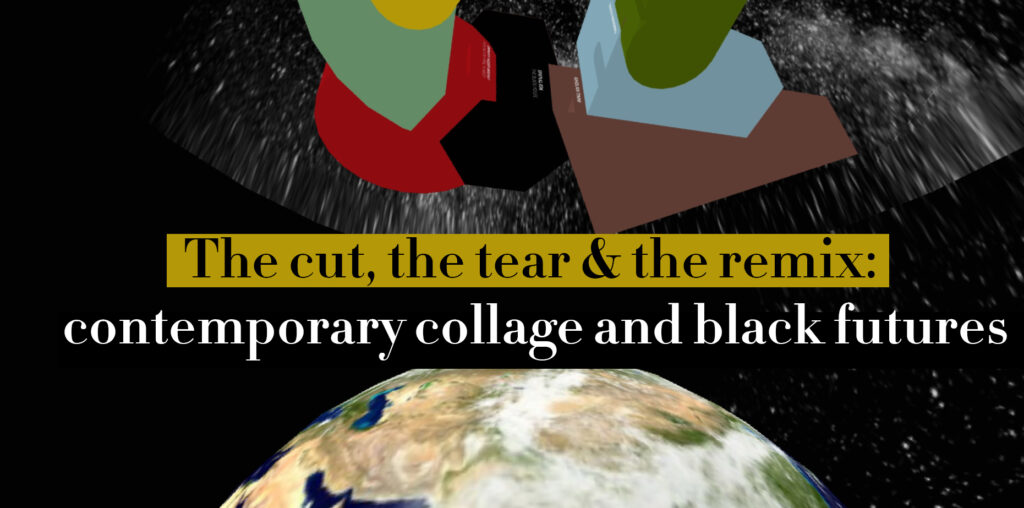
Program 5
we are all connected (outdoor program)
Art and visual culture can help us think about who we are and who we are responsible to.
Participants will consider their connection to individuals, groups, and life around them through facilitated discussion and interaction with outdoor artwork on McMaster’s campus. These works will engage with ideas including how artists ask questions, the role of visual culture in our lives, and the connections we all share with each other.
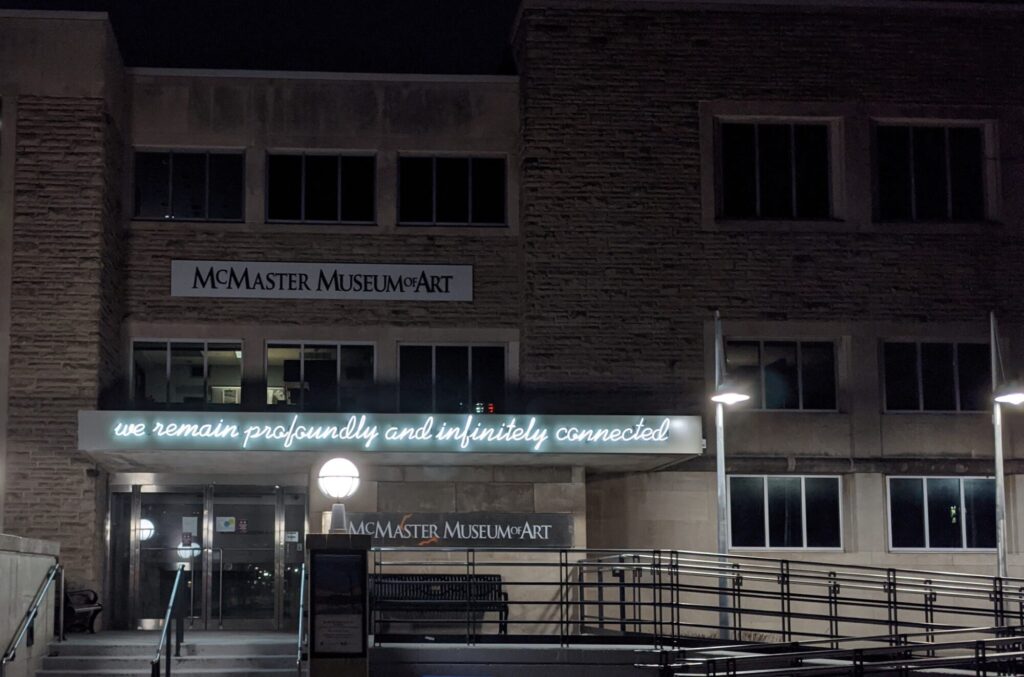
Program 6
Logo Design: How Artists Communicate
Through guided looking at artwork from the McMaster Museum of Art collection, participants will examine how artists communicate. Connection will be made to commercial art via app logos, and participants will be asked to engage with critical media literacy and consider design choice motivations.
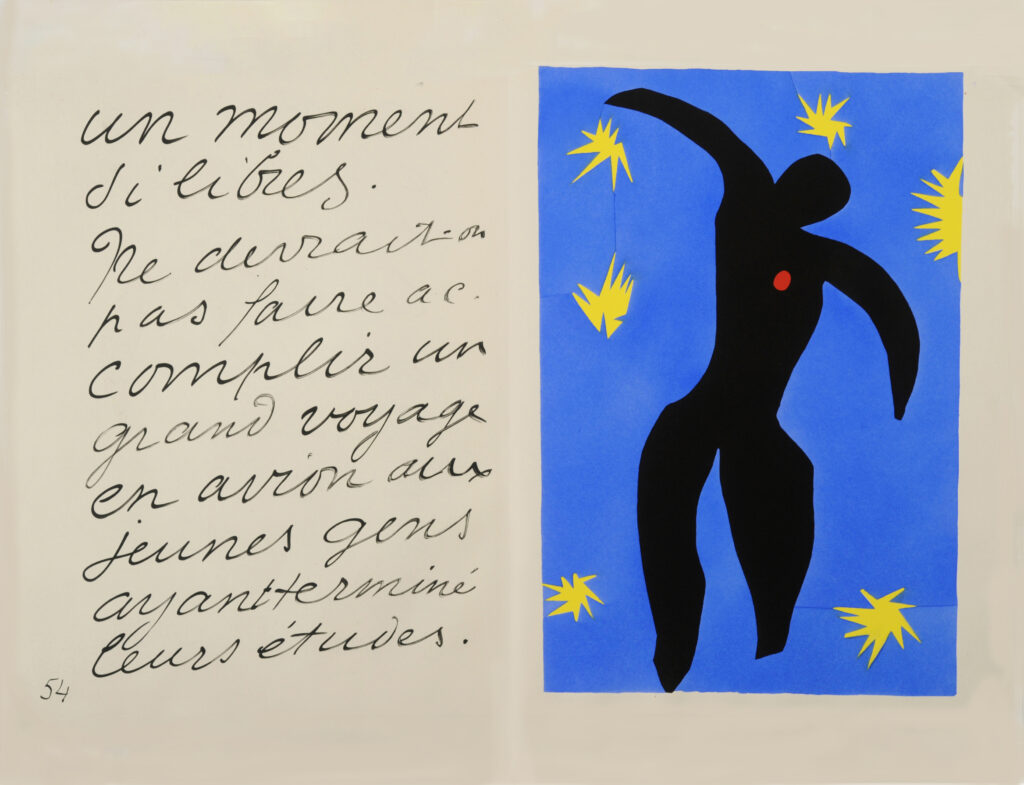
Program 7
Art, Music, Identity
Participants will examine the connection between visual art and music through engaging activities that contrast and compare sounds and visual art. A hands-on activity will ask participants to respond to clips of music, with a suggested follow up activity to reflect on personal identity, music, and visual art composition.
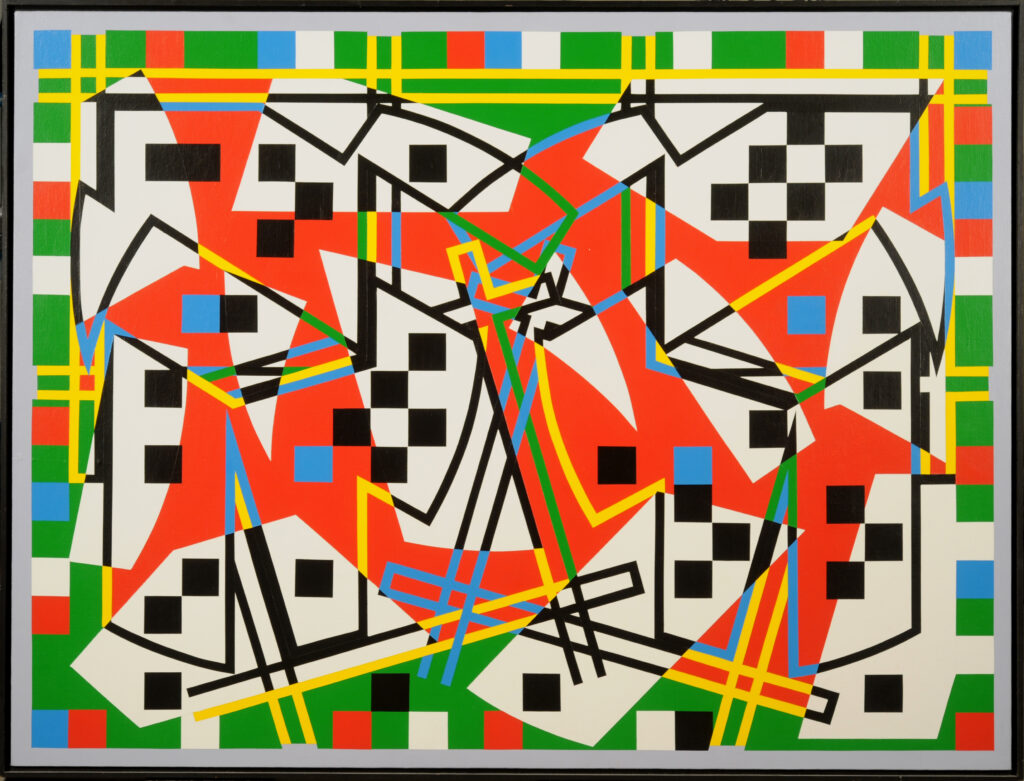
Program 8
Map Making and Art: High School SHSM Geography and Art
Participants will examine various approaches to map making, looking critically at the colonial nature of maps.
The program includes a facilitated discussion surrounding map making as visual expression of cultural values, and critical interpretation of included and excluded content. Indigenous conceptions and connections to land will be highlighted.
A post-program activity asks participants to engage with research and listed resources to answer reflection questions designed to encourage critical thinking and connect to each individual’s responsibilities to the Dish With One Spoon wampum agreement.
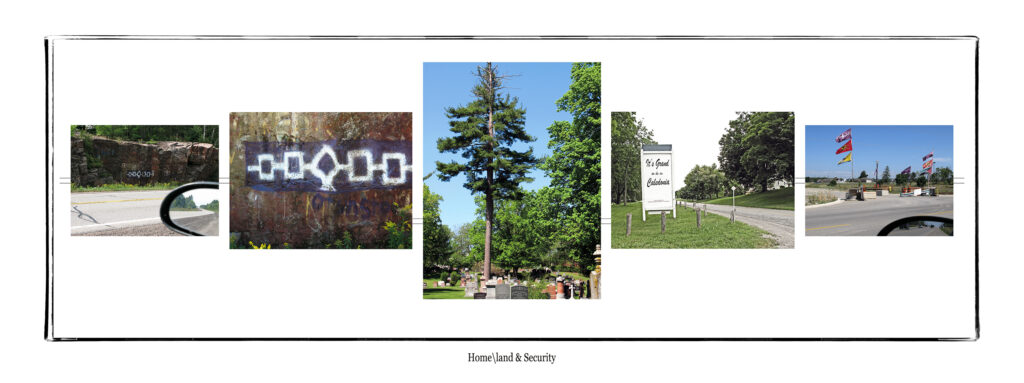
Program 9
The Power of Arts-Based Learning
Participants will hear and experience how visual art-based learning is vital to a variety of different career paths, beneficial to individuals’ well-being, and can help society build a better future. Observation, social/emotional learning and so many other skills are developed in the Arts!
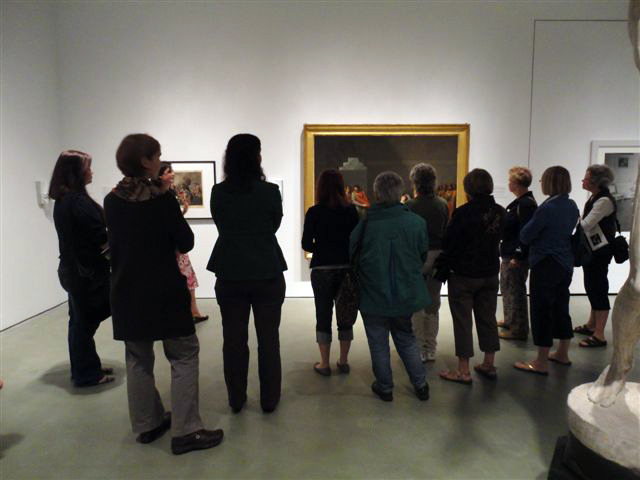
Program 10
Art, Sketching, and Cultivating a Creative Habit for Well-being
In this presentation, participants explore the methods and benefits of cultivating a creative habit by keeping a sketchbook. Through examples from the McMaster Museum of Art collection, participants see how artists approach their own creativity, engaging in the mindful practice of observation, contemplation, and reflection.
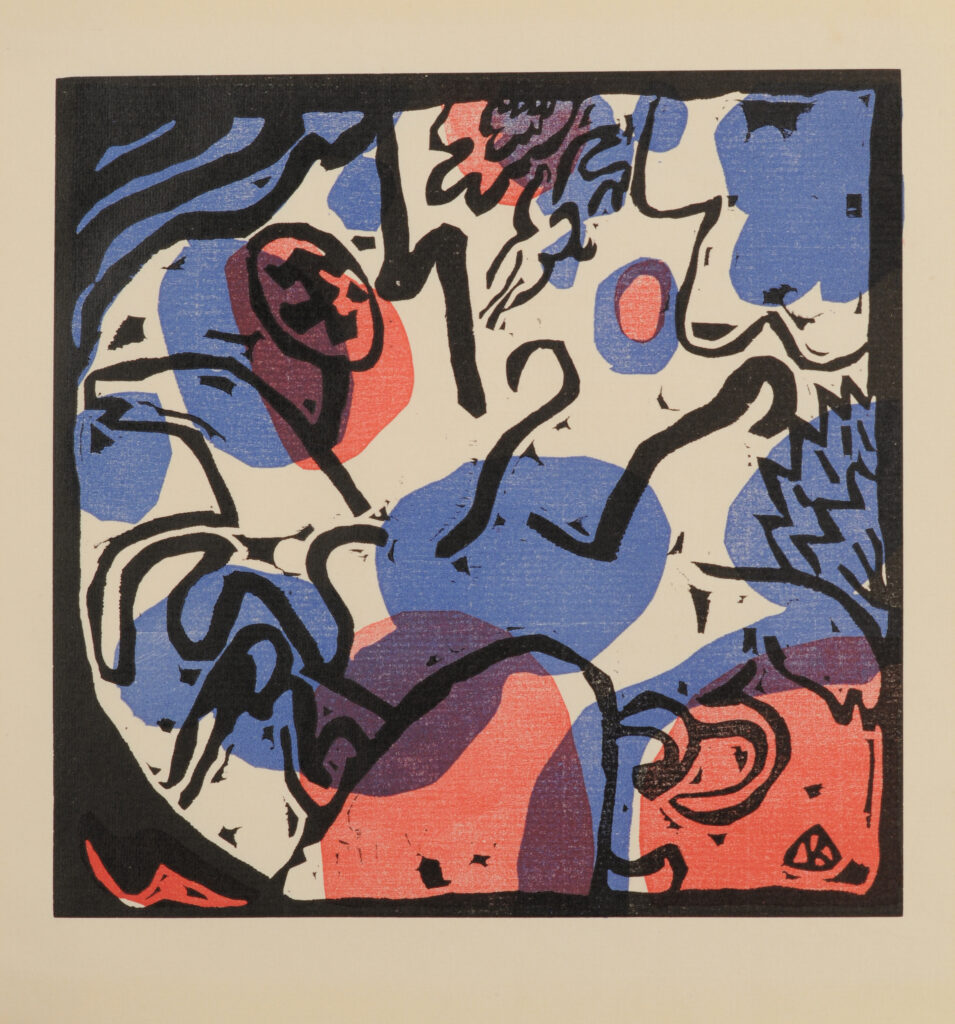
Program 11
Identity and Art
Participants will examine identity and how it is expressed by artists from different time periods, places, and cultures and how these contexts affect the perspectives of both artist and viewer. Style, media, and symbolism will be discussed, and will form the basis of the activity.
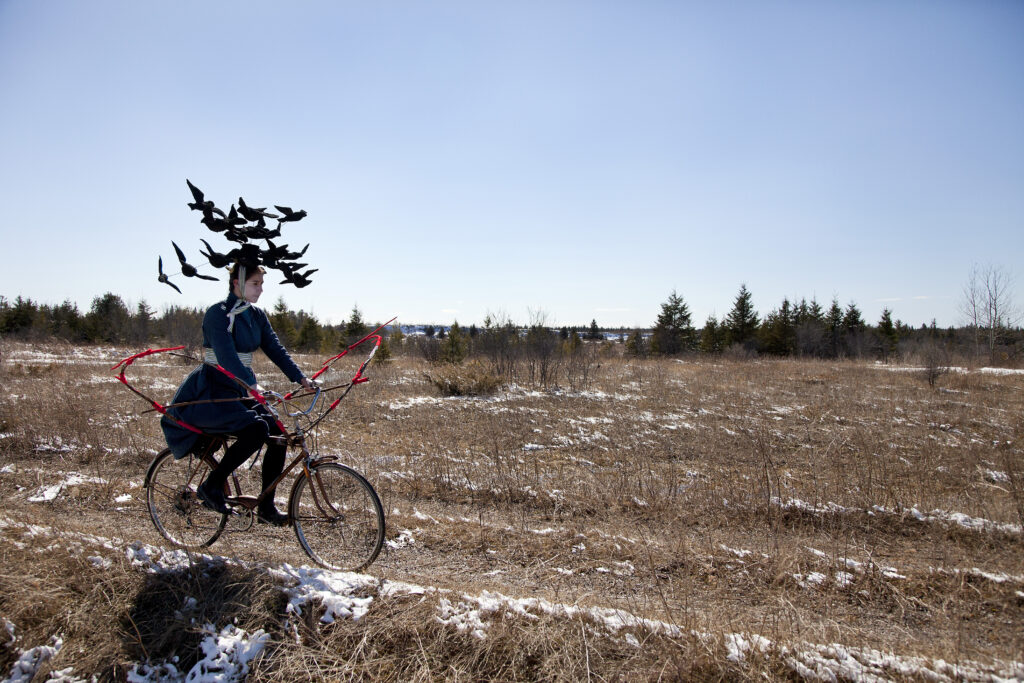
Program 12
Printmaking: Mass Communication on a Piece of Paper
Participants will design and create their own printing block and discover the mass communicative power of making multiple original artworks. Various artistic approaches throughout history will be explored. The artistic challenge posed will focus on creating simple and effective images in order to communicate with the viewer.
